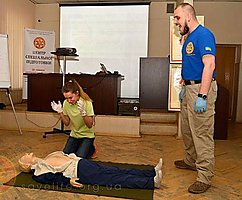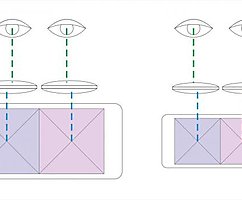Empty words: a brief history of the term "civil society"
 Bashny.Net
Bashny.Net

© Maurizio Сattelan
Political terms are not ideologically neutral, but, on the contrary, often are an instrument of current political struggle or expression existing in the society of power relations. In the old European tradition that stems from Aristotle, the concept of "civil society" meant a community of free and equal people, United by the obedience of one political power — a direct translation from the ancient Greek πολιτική κοινωνία or Latin societas civilis. And "civil" in the ancient tradition meant the same as "political", that is, civil society was synonymous with the state. Later the key element in the definition of civil society was precisely his opposition to the state, and the relationship between civil society and state became a Central issue.
According to Manfred Riedel in the article "Civil society" from the "Dictionary of basic historical concepts", the term κοινωνία πολιτική which introduces Aristotle at the beginning of his "Policy" was crucial for political thought from antiquity to the modern era. It is possible to transfer the principle of cooperation of equal citizens with specific public schools (Athenian Polis) on any subsequent political system.
The Aristotelian notion for the first time translated into Latin as societas civilis in Cicero. This preserves the different versions of translation — civilis and politicus, which were synonymous in the ancient Roman use. Thomas Aquinas civil society (communitas civilis) is opposed to the divine community (communitas divina) as occupying a lower tier in the hierarchy.
In early modern philosophy, in the writings of Machiavelli, Hobbes, and Boden, where the idea of "sovereign", which makes a society "civil" and "manageable." In other words, in public for the first time invades the state as immanent to education. The Emperor's will begin to embody the unity of the citizens in the state. Thus, the state has replaced civil society. This was due to the historical process of concentration of power in the hands of the monarch.
In the XVII century there is a process that begins to radically change the social structure of European States. In this respect, all ahead of England, where the industrial revolution and political freedom arose much earlier. In the writings of John Locke, Adam Smith and Adam Ferguson begins the comprehension of transformations.
"Civil society begins to emerge at the intersection of two trends — on the one hand, the withdrawal from the public sphere and the emphasis on subjectivity, on the other, the thirst for political activity"
M. Yampolsky in the book "return of the Leviathan" writes that Smith and Locke use the concept of "civil society" describe the evolution of the human community, which population growth begins to develop rules for protecting the property ownership, which guarantees a peaceful cohabitation of people. This security, according to the ideologues of early liberalism, meant to protect the state. Yampolsky describes this process as the gradual destruction of a society in which human relationships were limited statuses, and degradation prevailing social codes.
Jürgen Habermas notes that at this time the state assumes the administrative function by providing production separated from the market economy. The sovereignty is embodied in the figure of the Emperor, who paternalistic will provide individuals with the minimum necessary freedoms for the development of the market economy. In the future begin to produce the establishment that allow the private sphere to protect their integrity. However, during this process, the state increasingly becomes an appendage of social relations, and the private meets the public. This is another paradox, as at the dawn of a New time the "public" understood as "the state" and was opposed to the private sphere, which was the government's attempt to usurp the public realm, prirovnyat it to the official administrative.
Together with the separation of the private and a new public arises. Formed by the XVIII century the public begins more and more to claim control over political power. This force acts in the gap between the public and private spheres. Moreover, the private sphere refers to the economic sphere of production and exchange of goods as well as private family life.
Habermas also notes that at this time there is a need for shelter for the public, where individuals could freely Express their opinions. The public is beginning to create clubs, shops, cafes, theatres, the press, the Academy, enters the cultural sphere of literature and art. These urban institutions become centres of attraction to the public as opposed to Royal court.
According to Yampolsky, civil society begins to emerge at the intersection of two trends — on the one hand, the withdrawal from the public sphere and the emphasis on subjectivity, on the other, the thirst for political activity. The Anglo-Saxon tradition cultivated the virtue that lies in the private sphere, from the position which citizens should look at society. To fill the void, formed in the process of care in the privacy of great importance begin to acquire mimetic of pseudolines, politicians, and actors.
Michel Foucault sees the roots of the formation of the concept of "civil society" in the process of regulation of economic relations. Among the English-language theoretical works on civil society, Foucault distinguishes Ferguson's treatise "the Experience of history of civil society", in which it is called the driving element of the story.
The man is understood Ferguson and Adam Smith as an economic entity through the benefits that it brings to society in his place, playing his role. While civil society is conceived as "the natural state". In other words, the problem of political authority that was formulated by theorists of the social contract boils down to the nature of social relations and natural rules of the community that existed "always".
Because of all this, says Foucault, the question arose, has become Central to political theory: if civil society is naturally originated, self-governing Association, why would he need the state? According to Foucault, a fundamental turn civilization occurred at the time when the XVI—XVII centuries, the government begins to run society on a rational calculation. It streamlines the art of control in contrast to the old principle of "wisdom."
According to Foucault, civil society is part of the technology government management of economic entities with legal norms. The power of the government that manages civil society, the ubiquitous due to the fact that it is limited by legal norms and is considered with the specifics of the relations of economic agents.
A certain amount of time the state, through various technologies of manipulation begins to motivate the individual to self-restraint, self-management and chronic war with itself. The technique of power over the individual body and spirit, normalization of everyday practices inside companies allow to increase the useful power of the individual. Foucault calls this the transition from a disciplinary society to society of control. Thus, the state should not oppose civil society, according to Foucault, and the latter is a natural continuation of the first.
"In the twentieth century, the term lost its relevance and is almost not used in European languages. New life is a notion received from the beginning of perestroika and the rise of capitalism in the USSR and socialist countries"
Riedel believes that in the German tradition, the ratio of civil society and the state was much more problematic than in English and French. In the late XVIII — early XIX centuries, the German understanding of civil society was based primarily on the state as an economic sector refers to the public sphere — due to the lack of strong liberal tradition. Conservative Karl Ludwig Haller saw the root of all evils (i.e., revolutions) in the use of Roman political vocabulary, including the concepts of "civil society" that comes from the Republican tradition.
August Ludwig Schlozer in the late eighteenth century, first in the German language distinguishes between civil society (bürgerliches Gesellschaft) and the state. Kant, in developing his theory of law, opposed by civil society the "natural" state of society, and the dichotomy of domination-citizenship. Freedom and coercion are combined his "General will" of civil society. Fichte already criticized the contract theory, bringing together civil society and the state. He focuses on overcoming society States that occurred in the Wake of the French revolution. Subsequently, Hegel continued his criticism of the identification of civil society and the state.
After 1830, says Riedel, the constitutional-liberal theorists adhered to the principle of eliminating the "mob" of civil society, while socialists put the issue of universal social equality and advocated a political struggle for the emancipation of the masses. Thus, by the mid-nineteenth century the term moved away from the traditional European semantics inherited a contractual theory.
After the revolution of 1848 civil society no longer corresponds with the state. This is due to the resulting social contradictions and ideological struggle of socialist against bourgeois society, which is not allowed to talk about society as a single heterogeneous education. By the 1870s, the years of the German conservatives, in particular Heinrich von Tracke again actualized the concept of "civil society", implying it unchanged class system of government, based on the principle of domination and subordination that cannot be change. The socialist tradition has established a concept of the value of the "bourgeois society".
In the twentieth century, the term lost its relevance and is almost not used in European languages. New life is a notion received from the beginning of perestroika in the USSR. One of the greatest thinkers of civil society Andrew Arato writes that the concept of civil society was revived by Marxists (or postmarxist) in the socialist countries. Criticizing a socialist authoritarian model of the Soviet Union, they saw in the idea of civil society the possibility of restoring social relations outside the state. Much success in this conceptualization achieved the Polish Union "Solidarity".
Arata, he made a significant contribution to theoretical rehabilitation of the term, however, notes that soon this concept in the countries of the former socialist bloc (especially in Hungary) has become a journalistic cliche that has lost some terminological clarity.
It was assumed that the development of civil society will lead in those countries to liberation from the authoritarian regime. Arata sees a contradiction in the fact that something non-existent (civil society as an institutionalized legal relations of citizens) leads to self liberation. The complexity of determining costs
before the theory so far, he said. The problem is that civil society often is understood as any public organization. One of the main characteristics of civil society — democracy and equality of its members — is in conflict with the functioning of such organizations, particularly in science, art, religion, law, etc., where communication is done by special laws.
Describing the dynamics of changes in the meaning of the term in post-Soviet Russia, Elena Belorukova highlights one fundamental metamorphosis that has occurred in the past decade. After the Soviet collapse, Russia faced many non-governmental organizations (NGOs). Their goal was the formation of civil society in the newly capitalist country. The state did not interfere in the activities of these organizations.
The situation began to change in 2000-ies, when the state began to actively penetrate into the area, traditionally within the competence of civil society. Emerged at this time, the official ideology has not assumed the activities of those organizations which were engaged in educating citizens and instilling in Russia, the Western culture of interaction between society and the state. In the official discourse by civil society is now understood not a collection of NGOs and special government organizations (for example, the Public chamber), which are assigned the functions of regulation of certain areas of public life — health, education, public safety, etc.
The latest Chapter in the history of the term, according to Belorukova was observed during mass protests 2011-2012 years in Moscow and other Russian cities. At this time, perestroika has revived the idea of reform of the authoritarian regime by means of social self-organization. But the semantic emphasis shifted from the idea of fighting with the government towards the needs of every member of society in the essential civil rights (see, for example manifestos, published in the journal "Billboard"). Civil society was understood as a way of fighting for their rights and freedom.
Example of modern usage:
"But we are keen to develop civil society in Russia, it criticized the government, criticized, helped authorities to identify their own mistakes, to adjust their policies in the interests of the people. We are certainly interested, and we will support civil society and non-governmental organizations".
President Of Russia Vladimir Putin. "Munich speech"
References:
Andrew Arato. Civil society and political theory.
Manfred Riedel. Civil society. A dictionary of basic historical concepts.
M. Yampolsky. Physiology symbolic. Book 1. The Return Of Leviathan.
Jürgen Habermas. Political work.
Michel Foucault. The birth of biopolitics.
E. Belorukova. New and old in the discourse of civil society.
Source: theoryandpractice.ru
Tags
See also
What we know about hamsters
How the economy makes us unhappy
Andrew Rogozinski about what a bad person economic
"The whole discourse of terrorism aimed at the establishment of the national audit office:" an interview with Jonas Staal
Andrei Zorin about the traumas of the past and political manipulation
Of the disciplinary battalion (47 photos)
They no longer exist
A brief history of space exploration,

















